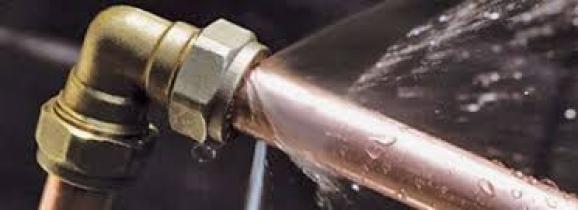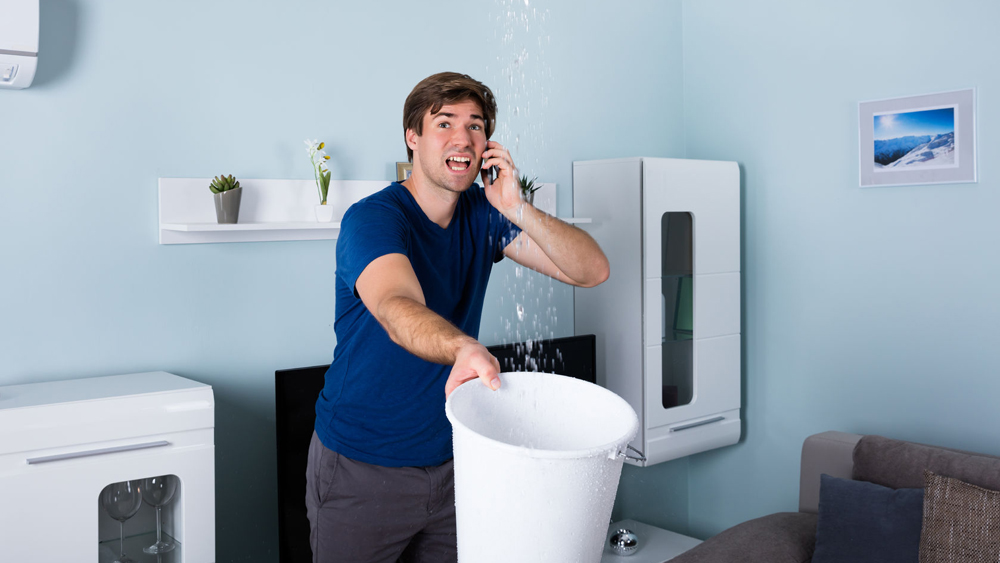We have stumbled on this great article about How to detect water leaks in your home directly below on the web and felt it made good sense to write about it with you on my blog.

Leaks not only cause waste of water but can additionally create unnecessary damages to your home and also promote undesirable organic growth. By looking as well as recognizing for everyday circumstances that trigger leaks, you can shield your residence from future leaks and unneeded damages.
Trespassing roots
Most water leakages begin outside your home as opposed to inside it. If you observe a sudden decrease in water pressure, state in your tap, require time to go out as well as examine your lawn. You might notice wet spots or sinkholes in your lawn, and that may indicate that tree origins are getting into water lines creating water to permeate out. You can have your plumber look for breach, especially if you have trees or bushes near your residential property.
Corroded water supply
This may be the cause of discoloration or bending on your water pipes. If our plumbing system is old, think about replacing the pipes because they are at a higher risk of corrosion than the newer models.
Faulty Pipeline Joints
Pipe joints can weaken over time, resulting in water leaks. If you have noisy pipes that make ticking or banging sounds, specifically when the warm water is turned on, your pipeline joints are most likely under a lot of pressure.
Instant temperature adjustments.
Extreme temperature modifications in our pipes can trigger them to increase as well as get suddenly. This growth and contraction might cause splits in the pipelines, especially if the temperature level are below cold.
Poor Water Connectors
At times, a leakage can be caused by loosened hoses as well as pipelines that provide your home appliances. In situation of a water links leakage, you might notice water running directly from the supply line or puddles around your appliances.
Obstructed Drains
Blocked drains could be annoying as well as inconveniencing, but they can sometimes wind up causing an overflow bring about burst pipelines. Maintain removing any type of materials that may drop your drains that could obstruct them to prevent such inconveniences.
All the above are root causes of leakages yet not all water leakages result from plumbing leaks; some leaks may originate from roof leaks. All leaks should be fixed promptly to prevent water damage.
Leakages not only trigger waste of water however can also create unnecessary damages to your home and advertise undesirable organic development. By understanding and looking for daily situations that cause leaks, you can secure your home from future leaks and unneeded damage. Today, we will look at 6 leak creates that may be triggering your pipes to leak.
At times, a leak can be created by loose tubes as well as pipes that supply your devices. In case of a water links leakage, you may discover water running directly from the supply line or pools around your home appliances.
Tell-Tale Signs of a Water Leak
The Sound of Running Water
If you’re hearing water running, your first step should be to check your faucets, toilet valves, and outdoor spigots. If everything if status quo, take an exact reading of your water meter and don’t use the water for a few hours. Then, take another meter reading. If there has been no change, that means water is not running (and maybe it’s time to have your hearing checked!). If the reading has changed, however, this indicates that water is indeed flowing and you most likely have a leak.
Wet or Damp Floors
You’re walking across your carpet and suddenly squish—your sock is soaked! The dog doesn’t look guilty and your child swears they didn’t spill anything. That means you’re likely looking at sewer leakage. Now, it’s easy to just soak it up with a towel and call it a day; however, this won’t stop the leak. Ignoring the problem allows moisture to build up, ultimately causing mold or mildew. Not only is this smelly, it can be very toxic and harmful to children, the elderly, pets, and those with weak immune systems. Don’t risk the health of your home and your family—call in a professional to take care of the problem.
Foul Odors
If there’s an unpleasant smell in your home and you can’t locate the source, don’t just light a candle or spray some Febreze. Funky smells are often due to mold and mildew, which spread fast under ideal conditions (optimal temperature and level of humidity). Growth begins within about 24-48 hours, and spores start to colonize in 3-12 days, becoming visible to the eye within about 18 days. If you think the odor is leak-related, get a plumber out as soon as possible to mitigate damage from rapid fungi growth (and rid your home of the foul odor).
Overgrowth in the Lawn
Unless you didn’t fertilize your lawn evenly, a lush patch of grass in a select area of your lawn, or concentrated wet spots, indicate pipe leakage which is acting as a fertilizer. Left untreated, hazardous bacteria in the underground waste will quickly turn into a messy situation, going from lush growth to lawn destruction.
Wall Cracks
Over time, even the littlest of leaks can cause cracks in the foundation of your home and compromise the entire structure. How does it happen? The leak continues hammering away at the same spot in the ground beneath your home, eventually causing it to shift slightly. Now, you’d never feel this shift, but your walls will. This can be a very dangerous situation, so if you’re seeing vertical or diagonal cracking in your walls it’s best to call a plumber right away.
https://www.expresssewer.com/blog/6-telltale-signs-of-a-water-leak-in-your-home

I came across that page on Most Common Causes of Leaky Pipes when looking around the web. Appreciated our post? Please share it. Let others locate it. We truly appreciate reading our article about How Fast Water Damage Can Ruin Your Home.
Act now!
Comments on “The Home's Most Frequent Leak Triggers: Analysis”